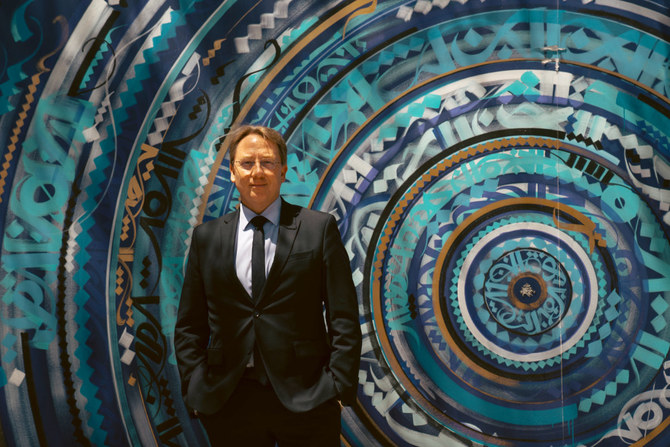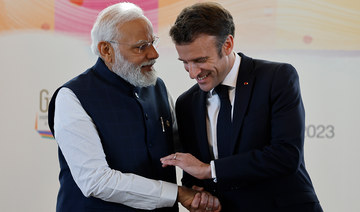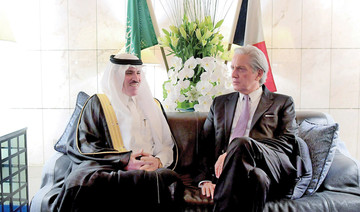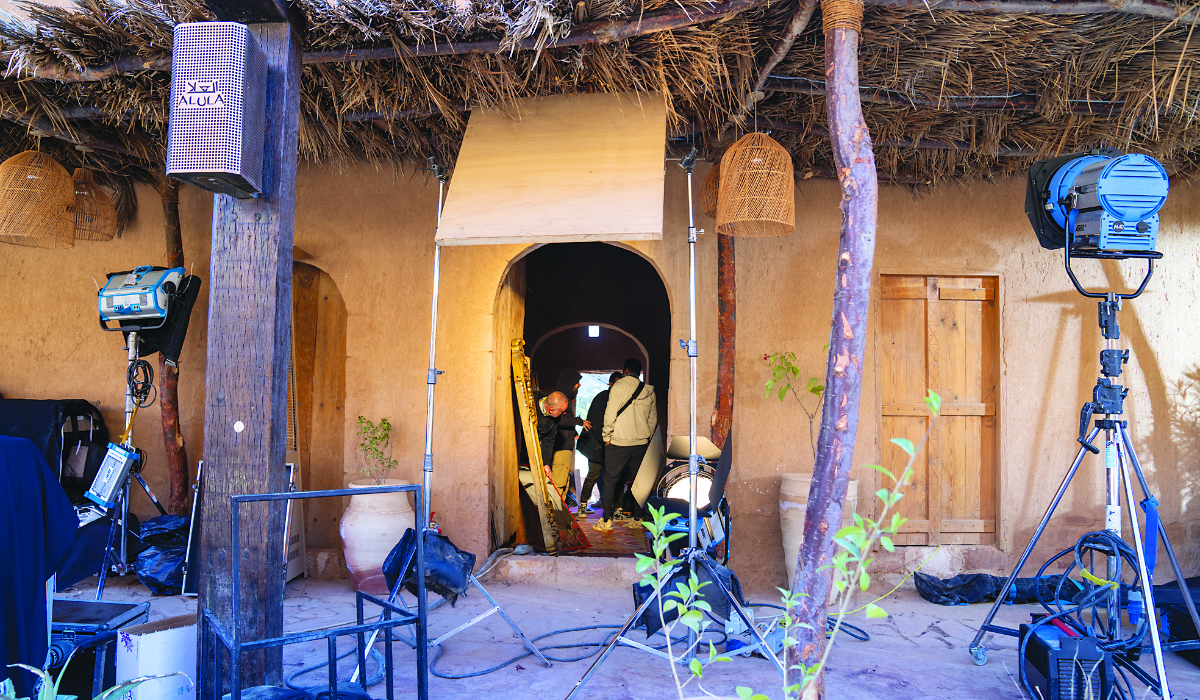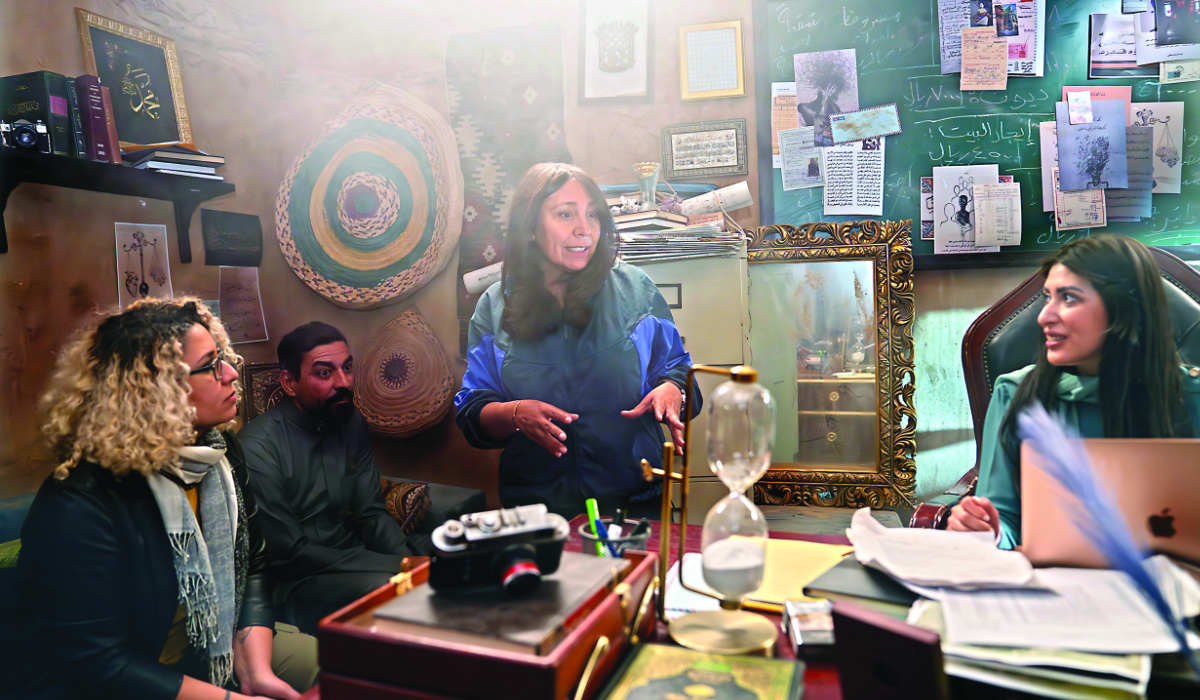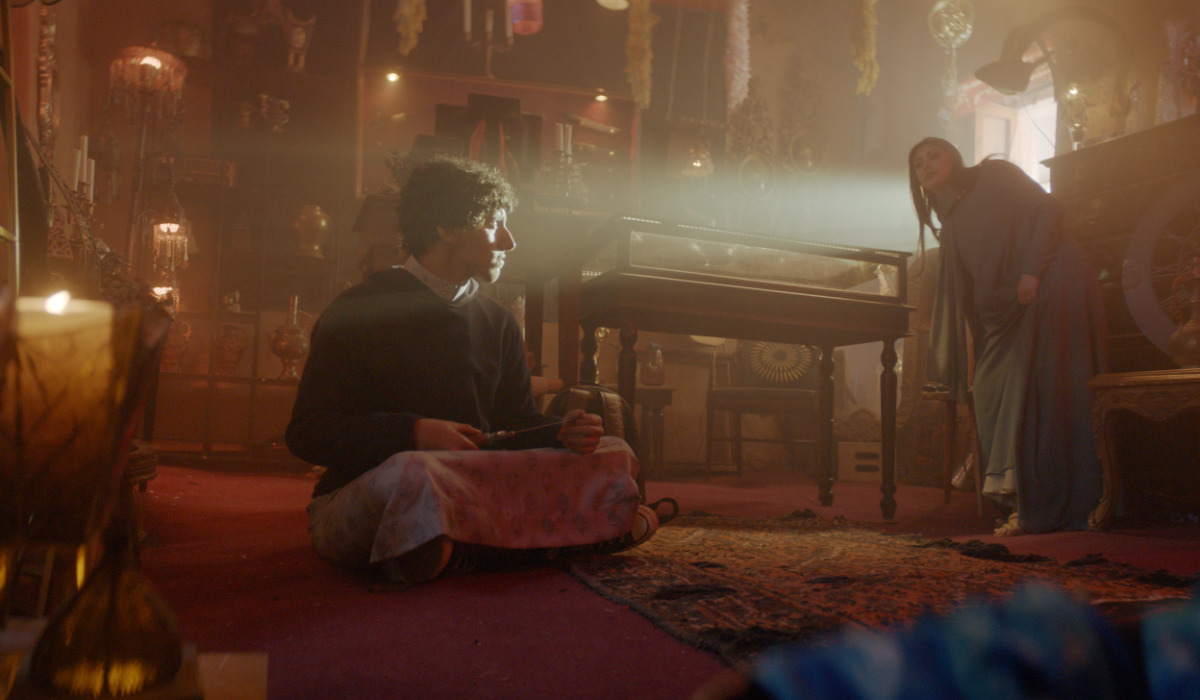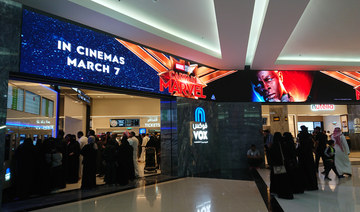RIYADH: From trade relations to cultural cooperation, the strategic partnership between France and Saudi Arabia is stronger than ever, Ludovic Pouille, the republic’s ambassador to the Kingdom, told Arab News on the occasion of the French national holiday, Bastille Day.
“As we celebrate today the French national holiday in Riyadh and in France and in all French embassies around the world, I would like to thank King Salman, and Crown Prince Mohammed bin Salman, for their outstanding role in strengthening our strategic partnership,” the envoy told Arab News en Francais.
France and the land that would later become the Kingdom of Saudi Arabia have shared diplomatic ties for almost two centuries. France opened its first consulate in Jeddah in 1830 and was one of the first countries to recognize Saudi Arabia as a sovereign state in 1926.
Since then, relations between the two nations have continued to develop.

Crown Prince Mohammed bin Salman and French President Emmanuel Macron (left) held a three-hour-long meeting in Paris after the Summit for a New Global Financial Compact in June. (AFP)
In June, Saudi Arabia and France participated in the Summit for a New Global Financial Compact, during which the countries’ leaders found common ground on the need for a more responsive international financial system that was just, inclusive, and able to tackle inequality, finance the green transition, and work toward achieving the UN Sustainable Development Goals.
Pouille said: “The crown prince participated in the summit for a global financial pact, organized by the French President Emmanuel Macron. And then the two leaders had a very long bilateral three-hour meeting, during which they were able to discuss all the topics, both regional and international issues on which we are aligned and have a common vision, and also bilateral issues.”
The dialogue between the crown prince and Macron was viewed at the time as an important meeting of minds between two leaders who are of a similar age and who share a common vision for development and cooperation.
Pouille was speaking to Arab News en Francais in Riyadh on the occasion of Bastille Day — the French national holiday — marked on July 14.
Every year, France celebrates the anniversary of a historical incident known as the storming of the Bastille, when revolutionaries seized control of the medieval armory, fortress, and political prison in the center of Paris — known as the Bastille — on July 14, 1789.
The event marked the beginning of the French Revolution. On the same date a year later, the capture of the Bastille was celebrated during the Fete de la Federation, but it was not until 1880 under the Third Republic that the day was formally adopted as a national holiday.
Over the centuries since the period of revolutionary turbulence, France has gone on to become a global power in everything from defense, energy, and engineering to culture, diplomacy, and humanitarian leadership.

Speaking to Arab News en Francais, Ambassador Ludovic Pouille praised the role of the KSA leadership in the strengthening of the Saudi-French partnership. (Supplied)
And France is now undergoing yet another transformation, adapting its economy to new emerging industries, often referred to as the fourth industrial revolution, 4IR, or industry 4.0, empowering its youth, and shifting attention to cleaner and greener infrastructure to address the climate crisis.
Pouille noted that Saudi Arabia has become a crucial partner in the transformation thanks to the shared priorities of the two countries. “We have the Saudi Vision 2030 here, but we also have the France 2030 plan,” he added.
“And these two strategies are coherent since they aim to enable our respective countries to overcome the two most essential transitions, the most important ones today for our youth and for our peoples, which are the energy transition and thus the problem of the fight against climate change, and the digital transition, and therefore toward industry 4.0, new technologies. On these two subjects, France and Saudi Arabia are working hand in hand.
“In this regard, the visit to France last month, for nearly two weeks, of Mohammed bin Salman, the crown prince and prime minister, at the head of a large ministerial delegation. This is their fourth meeting in less than a year. A crucial, strategic relationship, which now covers all areas, and which has experienced an absolutely exponential growth in all sectors over the past two years.
“We also had a dozen Saudi ministers there, who were able to meet with their counterparts. We had an economic forum, which welcomed 700 participants, at the end of which 24 agreements were signed between French companies, institutions, or Saudi companies for more than 3 billion euros ($3.35 billion), covering a wide range of sectors including energy, defense, health, and telecommunications.”
Perhaps the most striking example of the partnership is France’s cultural cooperation with Saudi Arabia, linked to the Kingdom’s opening to the world and the implementation of Vision 2030, the social reform and economic diversification agenda announced by the crown prince in 2016 — in particular its Quality of Life program.
Under the program, the Kingdom has invested heavily in new sectors, including sport, heritage, the arts, entertainment, and tourism, with a view to empowering its young people by creating exciting job opportunities and a dynamic business startup scene.
It has also launched multiple giga-projects to attract visitors and investors, including the heritage sites at AlUla and Diriyah, the smart city of NEOM, all new luxury resorts on the Red Sea coast, and entertainment villages such as Qiddiya.
Pouille said: “Cultural cooperation is expanding. I am delighted with its dynamism and the vitality of this sector. Since my arrival in Saudi Arabia almost three years ago, I have never ceased to be impressed by the dynamism of youth and this society.
“I am impressed by the creativity and the will of modernity. I am impressed by the artists and the forces of this country, by the women and young people who are asserting themselves as a driving force.
“In recent months, we have celebrated many successes. First the anniversary of the 20 years of Franco-Saudi archaeological cooperation, which began in Hegra in 2002 and now extends to 16 emblematic places of the rich Saudi heritage.
“I can also mention the partnership agreement between the National Art Center and the Georges Pompidou Cultural Center and the Royal Commission for AlUla, which will contribute to the establishment of a museum of contemporary art in AlUla, unique in the region.
“The joint decision to create the Villa Hegra, a Franco-Saudi cultural and artistic hub, will place AlUla at the top of contemporary creation in the Middle East,” the ambassador added.
With several reciprocal cultural events in the calendar and many more projects in the works, Pouille is confident Saudi French cooperation will only continue to flourish.
He said: “I am very pleased with the growing cultural dialogue between our two countries.
“The exchanges continue to multiply, as demonstrated by the Saudi-Franco concerts in Riyadh and Paris, the AlUla event under the stars, exchanges between film professionals from both countries in Jeddah or Cannes, and collaborations in the fields of photography, gaming, fashion, design, and sport.
“Between us, the sky’s the limit,” Pouille added.




